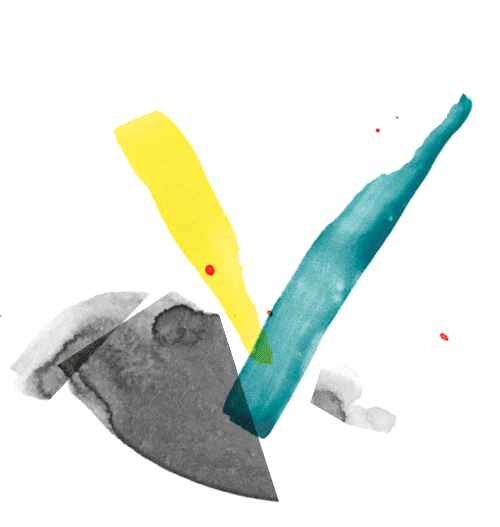

Sign up for our newsletters. You can change the settings or unsubscribe at any time.
Thank you for your subscription. We have sent you an e-mail with a confirmation link.


exp. 1
exp. 2
exp. 3

Documentation
exp. 3: Affect Archives. Sinthujan Varatharajah – Osías Yanov
Sinthujan Varatharajah: how to move an arche
Exhibition views, wall texts, audio and video material
For exp. 3, researcher, essayist, and political geographer Sinthujan Varatharajah looks critically into the aftermath of the 1983 anti-Tamil pogroms and riots in Sri Lanka—and the wars and genocide that followed. These led hundreds of thousands of Tamils into exile. For those who emigrated to Europe, divided Berlin was their personal entry point. At the time, the Berlin Wall played a little-known role as a permeable gateway, a transit point used as a loophole of survival for many then “Third World” refugees. A special agreement between East and West Germany enabled refugees to enter through East Germany to settle in the West. In the 1980s, the political cracks in the walls of partitioned Germany became a lifeline of survival for the Tamil. This specific history of the Wall is the point of departure for Varatharajah’s investigations into physical and cultural borders and the memories of displacement of this community. Gathered in the exhibition space at the architectural complex at ExRotaprint are different traces of these transit routes, such as oral histories, newspaper clippings, photographs, maps, and other collected materials. Together they form a living archive reflecting on issues of encampment, statelessness, and spatial power, bringing forth a displaced people and their untold stories.
Wall texts (English, German, Tamil)
All audio material consists of excerpts from interviews with Eelam Tamils living in Germany, commented on and realized by Sinthujan Varatharajah:
Audio: Schönefeld Airport (German and Tamil)
Audio: Friedrichstraße (German and Tamil)
Audio: Zoologischer Garten (German and Tamil)
Audio: Life in camps for Eelam-Tamil refugees (German and Tamil)
Talk by Sinthujan Varatharajah with Duygu Örs, 28.2.2020:
Video: how to move an arche
For more information on the work of Sinthujan Varatharajah see @varathas
Photos: Mathias Völzke
Thanks to:
Umut Aydın, Till Gathmann, Jeyasangar Gopalapillai, Jakob Jakobsen, Ponniah Karunaharmoorthy, Ranjini Karunaharmoorthy, Sinduja Krishnakumaran, Abinaya Kumarakuranathan, Elif Küçük, Nadarajah Mathivathanasekaram, Prashanthy Mathivathanasekaram, Ram Paramanathan, Bruntha Puvaneswaran, Krishanthy Puvaneswaran, Selvaratnam Puvaneswaran, Yanantha Puvaneswaran, Tanasgol Sabbagh, Dama Sathianathan, Rathy Sriskandarajah, Yogarajah Sriskandarajah, Ralph Tharayil, Maharaj Varatharajah, Senthuran Varatharajah, Shanthynee Varatharajah, Sinnadurai Varatharajah & Garunya Wieczorek
Género y colonialidad en busca de claves de lectura y de un vocabulario estratégico descolonial
Rita Segato
Essay
Museo de la Solidaridad Salvador Allende (MSSA) in Berlin
A conversation between María Berríos and Melanie Roumiguière
Conversation
Grupo Experimental de Cine en acción
Gabriel Peluffo
Drawing
THE MOBILIZATION
Nicolás Cuello
Text
El primer nueva corónica y buen gobierno
Felipe Guamán Poma de Ayala
Chronicle
New Look
Flávio de Carvalho
Performance
By using this website you agree to the use of cookies in accordance with our data privacy policy.

Documentation
exp. 3: Affect Archives. Sinthujan Varatharajah – Osías Yanov
Sinthujan Varatharajah: how to move an arche
Exhibition views, wall texts, audio and video material
For exp. 3, researcher, essayist, and political geographer Sinthujan Varatharajah looks critically into the aftermath of the 1983 anti-Tamil pogroms and riots in Sri Lanka—and the wars and genocide that followed. These led hundreds of thousands of Tamils into exile. For those who emigrated to Europe, divided Berlin was their personal entry point. At the time, the Berlin Wall played a little-known role as a permeable gateway, a transit point used as a loophole of survival for many then “Third World” refugees. A special agreement between East and West Germany enabled refugees to enter through East Germany to settle in the West. In the 1980s, the political cracks in the walls of partitioned Germany became a lifeline of survival for the Tamil. This specific history of the Wall is the point of departure for Varatharajah’s investigations into physical and cultural borders and the memories of displacement of this community. Gathered in the exhibition space at the architectural complex at ExRotaprint are different traces of these transit routes, such as oral histories, newspaper clippings, photographs, maps, and other collected materials. Together they form a living archive reflecting on issues of encampment, statelessness, and spatial power, bringing forth a displaced people and their untold stories.
Wall texts (English, German, Tamil)
All audio material consists of excerpts from interviews with Eelam Tamils living in Germany, commented on and realized by Sinthujan Varatharajah:
Audio: Schönefeld Airport (German and Tamil)
Audio: Friedrichstraße (German and Tamil)
Audio: Zoologischer Garten (German and Tamil)
Audio: Life in camps for Eelam-Tamil refugees (German and Tamil)
Talk by Sinthujan Varatharajah with Duygu Örs, 28.2.2020:
Video: how to move an arche
For more information on the work of Sinthujan Varatharajah see @varathas
Photos: Mathias Völzke
Thanks to:
Umut Aydın, Till Gathmann, Jeyasangar Gopalapillai, Jakob Jakobsen, Ponniah Karunaharmoorthy, Ranjini Karunaharmoorthy, Sinduja Krishnakumaran, Abinaya Kumarakuranathan, Elif Küçük, Nadarajah Mathivathanasekaram, Prashanthy Mathivathanasekaram, Ram Paramanathan, Bruntha Puvaneswaran, Krishanthy Puvaneswaran, Selvaratnam Puvaneswaran, Yanantha Puvaneswaran, Tanasgol Sabbagh, Dama Sathianathan, Rathy Sriskandarajah, Yogarajah Sriskandarajah, Ralph Tharayil, Maharaj Varatharajah, Senthuran Varatharajah, Shanthynee Varatharajah, Sinnadurai Varatharajah & Garunya Wieczorek
#fight4rojava
Graffiti
Queer Ancient Ways: A Decolonial Exploration
Zairong Xiang
Monograph
II: La Solidaridad va Más Allá de un Concepto. Entre las Curadoras de la XI Berlin Biennale
Lisette Lagnado, Agustín Pérez Rubio
Conversation
Umbilical Cord Amulet
McCord Museum
Object
Freiheit für Chile!
Anonymous
Photo album
Memorial to the Sinti and Roma Victims of National Socialism
Dani Karavan
Memorial
By using this website you agree to the use of cookies in accordance with our data privacy policy.

Documentation
exp. 3: Affect Archives. Sinthujan Varatharajah – Osías Yanov
Sinthujan Varatharajah: how to move an arche
Exhibition views, wall texts, audio and video material
For exp. 3, researcher, essayist, and political geographer Sinthujan Varatharajah looks critically into the aftermath of the 1983 anti-Tamil pogroms and riots in Sri Lanka—and the wars and genocide that followed. These led hundreds of thousands of Tamils into exile. For those who emigrated to Europe, divided Berlin was their personal entry point. At the time, the Berlin Wall played a little-known role as a permeable gateway, a transit point used as a loophole of survival for many then “Third World” refugees. A special agreement between East and West Germany enabled refugees to enter through East Germany to settle in the West. In the 1980s, the political cracks in the walls of partitioned Germany became a lifeline of survival for the Tamil. This specific history of the Wall is the point of departure for Varatharajah’s investigations into physical and cultural borders and the memories of displacement of this community. Gathered in the exhibition space at the architectural complex at ExRotaprint are different traces of these transit routes, such as oral histories, newspaper clippings, photographs, maps, and other collected materials. Together they form a living archive reflecting on issues of encampment, statelessness, and spatial power, bringing forth a displaced people and their untold stories.
Wall texts (English, German, Tamil)
All audio material consists of excerpts from interviews with Eelam Tamils living in Germany, commented on and realized by Sinthujan Varatharajah:
Audio: Schönefeld Airport (German and Tamil)
Audio: Friedrichstraße (German and Tamil)
Audio: Zoologischer Garten (German and Tamil)
Audio: Life in camps for Eelam-Tamil refugees (German and Tamil)
Talk by Sinthujan Varatharajah with Duygu Örs, 28.2.2020:
Video: how to move an arche
For more information on the work of Sinthujan Varatharajah see @varathas
Photos: Mathias Völzke
Thanks to:
Umut Aydın, Till Gathmann, Jeyasangar Gopalapillai, Jakob Jakobsen, Ponniah Karunaharmoorthy, Ranjini Karunaharmoorthy, Sinduja Krishnakumaran, Abinaya Kumarakuranathan, Elif Küçük, Nadarajah Mathivathanasekaram, Prashanthy Mathivathanasekaram, Ram Paramanathan, Bruntha Puvaneswaran, Krishanthy Puvaneswaran, Selvaratnam Puvaneswaran, Yanantha Puvaneswaran, Tanasgol Sabbagh, Dama Sathianathan, Rathy Sriskandarajah, Yogarajah Sriskandarajah, Ralph Tharayil, Maharaj Varatharajah, Senthuran Varatharajah, Shanthynee Varatharajah, Sinnadurai Varatharajah & Garunya Wieczorek
Género y colonialidad en busca de claves de lectura y de un vocabulario estratégico descolonial
Rita Segato
Essay
Maternidades subversivas
María Llopis
Monograph
Expresiones de la locura: el arte de los enfermos mentales
Hans Prinzhorn
Monograph
New Look
Flávio de Carvalho
Performance
I: Junto a las curadoras de la XI Berlin Biennale for Contemporary Art
Renata Cervetto, Lisette Lagnado
Conversation
Freiheit für Chile!
Anonymous
Photo album
By using this website you agree to the use of cookies in accordance with our data privacy policy.

Documentation
exp. 3: Affect Archives. Sinthujan Varatharajah – Osías Yanov
Sinthujan Varatharajah: how to move an arche
Exhibition views, wall texts, audio and video material
For exp. 3, researcher, essayist, and political geographer Sinthujan Varatharajah looks critically into the aftermath of the 1983 anti-Tamil pogroms and riots in Sri Lanka—and the wars and genocide that followed. These led hundreds of thousands of Tamils into exile. For those who emigrated to Europe, divided Berlin was their personal entry point. At the time, the Berlin Wall played a little-known role as a permeable gateway, a transit point used as a loophole of survival for many then “Third World” refugees. A special agreement between East and West Germany enabled refugees to enter through East Germany to settle in the West. In the 1980s, the political cracks in the walls of partitioned Germany became a lifeline of survival for the Tamil. This specific history of the Wall is the point of departure for Varatharajah’s investigations into physical and cultural borders and the memories of displacement of this community. Gathered in the exhibition space at the architectural complex at ExRotaprint are different traces of these transit routes, such as oral histories, newspaper clippings, photographs, maps, and other collected materials. Together they form a living archive reflecting on issues of encampment, statelessness, and spatial power, bringing forth a displaced people and their untold stories.
Wall texts (English, German, Tamil)
All audio material consists of excerpts from interviews with Eelam Tamils living in Germany, commented on and realized by Sinthujan Varatharajah:
Audio: Schönefeld Airport (German and Tamil)
Audio: Friedrichstraße (German and Tamil)
Audio: Zoologischer Garten (German and Tamil)
Audio: Life in camps for Eelam-Tamil refugees (German and Tamil)
Talk by Sinthujan Varatharajah with Duygu Örs, 28.2.2020:
Video: how to move an arche
For more information on the work of Sinthujan Varatharajah see @varathas
Photos: Mathias Völzke
Thanks to:
Umut Aydın, Till Gathmann, Jeyasangar Gopalapillai, Jakob Jakobsen, Ponniah Karunaharmoorthy, Ranjini Karunaharmoorthy, Sinduja Krishnakumaran, Abinaya Kumarakuranathan, Elif Küçük, Nadarajah Mathivathanasekaram, Prashanthy Mathivathanasekaram, Ram Paramanathan, Bruntha Puvaneswaran, Krishanthy Puvaneswaran, Selvaratnam Puvaneswaran, Yanantha Puvaneswaran, Tanasgol Sabbagh, Dama Sathianathan, Rathy Sriskandarajah, Yogarajah Sriskandarajah, Ralph Tharayil, Maharaj Varatharajah, Senthuran Varatharajah, Shanthynee Varatharajah, Sinnadurai Varatharajah & Garunya Wieczorek
Género y colonialidad en busca de claves de lectura y de un vocabulario estratégico descolonial
Rita Segato
Essay
Struggle as Culture: The Museum of Solidarity, 1971–73
María Berríos
Essay
Teatro da Vertigem
Monograph
Invitation to the Species: Cecilia Vicuña
Tamaas / Cecilia Vicuña
Podcast
Glossary of Common Knowledge
L’Internationale Online
Glossary
Queer Ancient Ways: A Decolonial Exploration
Zairong Xiang
Monograph
By using this website you agree to the use of cookies in accordance with our data privacy policy.
By using this website you agree to the use of cookies in accordance with our data privacy policy.




